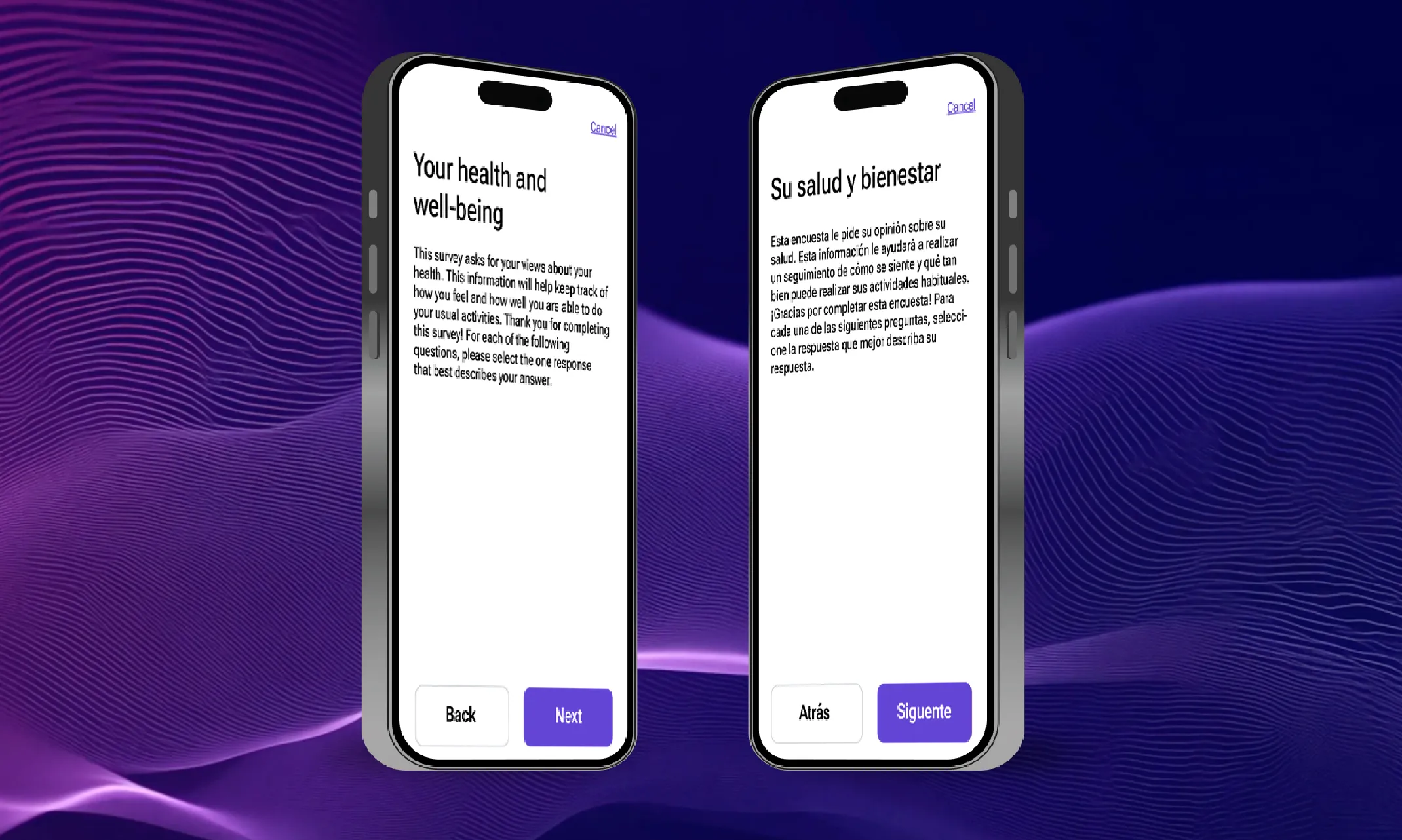Blog posts


Compounding interest: Why “good enough” data is good enough for agentic AI
Let’s ask a trick question.
Do you think your organization’s data is ready for AI, or AI Agents?
Most sponsors and CROs instinctively answer “not yet.” What this really means is that they don’t believe their data isn’t fully centralized, dictionaries aren’t perfectly aligned, and too many systems still operate in parallel. The result is that AI gets parked on the roadmap, waiting for a future state where everything is clean, standardized, and coordinated.
Here’s the twist; waiting for that moment is very thing holding organizations back.
When it comes to implementing agentic AI, the bigger risk right now isn’t imperfect data. Instead, it’s waiting for perfection before acting.


Sponsors talk AI: Novartis’ take on the evolving role of AI in clinical trials
Artificial intelligence is shifting from promise to practice in biopharma, and few domains feel the impact more than clinical development. In a recent conversation on the AI in Business podcast, Zhong Lu, director of data science and AI at Novartis, outlined how AI is evolving the clinical trials process end to end. His perspective centered on building internal platforms that unite structured and unstructured data, deploying document intelligence to remove process friction, and using responsible generative AI to support scientific decision making without compromising compliance. While the regulatory bar remains high and patient trust is paramount, Novartis’s approach shows how targeted applications of AI can streamline data operations, strengthen regulatory readiness, and make both traditional and decentralized trials faster and more resilient.


Sponsors talk AI: Takeda’s take on the evolving role of AI in clinical trials
Artificial intelligence continues to influence nearly every industry, and life sciences are no exception. In a recent conversation on the AI and Business podcast, Damien Nero, Head of Data Science in US Medical at Takeda Pharmaceuticals, shared his perspective on how AI is changing the clinical trial landscape. With over 15 years of experience applying machine learning and real-world data to drug development, Nero outlined both the progress already being made and the challenges that still stand in the way of broader transformation. His insights highlight how pharmaceutical leaders can think strategically about deploying AI to balance innovation with operational efficiency.


Reclaiming your time: How sponsors can save thousands of hours with agentic AI
“For almost a decade, it’s taken nearly eight months on average to get from site identification to study startup completion, when all sites are initiated and ready to enroll patients.”
While it’s often hard to quantify the average time spent on clinical trial activities like study startup, this 2018 quote from Tufts Research author Mary Jo Lamberti showcases the very real problem regarding the time it takes to reach key trial milestones.
In fact, in the seven years since that quote, the clinical trial landscape has only become more complex, with clinical trial cycle times increasing despite technology advances. Cycle times are defined as the total duration from the approval of a clinical trial protocol to the database lock (DBL). As reported by Statista, the average clinical trial cycle from 2020 to 2024 increased by seven months.
Additionally, IQVIA recently released research indicating that almost 50% of drug development time is attributed to non-scientific delays, aka operational bottlenecks that create unnecessary gaps between critical milestones.


Six steps to help you choose the right clinical trial partner
“This year, we’ve decided to stick to paper. We know what we’re getting and we’ve always done it this way.”
That was the unwavering response from a clinical operations lead at a pioneering biotech when asked why they still relied on paper diaries for patient-reported outcomes.
Despite the growing complexity of global trials, the promise of real-time data, and the surge of digital capabilities available today, some organizations have held tight to a method of clinical trial conduct that’s increasingly as outclassed as it is outdated.
It’s well known that individuals and organizations believe that change can be daunting, stressful, and difficult, especially when the old way is familiar and entrenched. However, much like anything else, having a partner who can help guide you through the process is massively important. But, how do you find the right partner for your trials?
Before locking in a vendor, organizations must engage in a deliberate process to assess their needs, align stakeholders, and set the foundation for long-term success. This blog explores the critical steps sponsors should take before selecting a digital partner, using insights and frameworks drawn from Medable’s therapeutic area standards and industry best practices.


From bottlenecks to breakthroughs: How AI is transforming translation timelines
According to ClinicalTrials.gov, there are 3,046 multi-country trials being conducted this year. While many trials remain localized within a single country, there has been a definitive movement towards conducting trials in multiple countries, especially for larger, later-stage trials. This is driven by the positives that multi-country trials offer, like faster patient recruitment, lower costs in some regions, and the need for diverse patient populations.. However, behind the scenes, a critical bottleneck has been slowing many trials down. This bottleneck is the translation process that’s required to make trials work across multiple languages, locales, and regulatory bodies/organizations.


The Top 5 myths about eCOA in 2025
With MarketsandMarkets projecting the global electronic Clinical Outcome Assessments (eCOA) solutions market to grow at compound annual growth rate (CAGR) of 16.1% each year until 2030, it’s clear the eCOA has made its impact within the clinical research landscape.
Yet despite growing adoption, electronic Clinical Outcome Assessments (eCOA) are still surrounded by misconceptions that hinder their full potential. From concerns about patient usability to assumptions about cost and implementation timelines, these myths can create hesitation among sponsors and research teams alike.
Thus, we’re here to cut through the noise and set the record straight with a summary of a recent webinar featuring speakers from Transcelerate and Medable.


Recapping DIA 2025
The 2025 Drug Information Association (DIA) Global Annual Meeting, held in Washington D.C., is beginning to wind down. As always, the conference has left a clear vision for the future of clinical trials. one defined by groundbreaking innovation, unprecedented global collaboration, and a profound commitment to patient well-being. This year's conference underscored key themes that are shaping the landscape of medical product development, with Artificial Intelligence (AI) and Real-World Data (RWD) taking center stage.


Drive scale with total control: Medable's new CRO partner program
What does it mean to do the heavy lifting?
In clinical research, it means assisting with research and development of new drugs alongside pharmaceutical and biotechnology companies, helping them complete the routine work that turns the gears to make new medicines.
Within pharma, contract research organizations (CROs) are indispensable partners in the advancement of clinical research who manage the complexities of clinical trials from protocol design to regulatory closeout, handling tasks like trial design, patient recruitment, data management, and regulatory submissions.
As a result, CROs have become indispensable partners in the advancement of clinical research who significantly contribute to our industry’s development of groundbreaking treatments, and human health.
However, the weights and the lifting methods have been changing. As Boston Consulting Group noted in their 2024 Nature article, clinical trials are becoming more complex. As a result, CROs face increasing pressure to deliver more with less.
Recognizing their importance in our mission and vision, Medable is excited to announce the launch of our comprehensive CRO partner program, designed to be a game-changing engine for growth and control in the clinical research industry.


What happened at ASCO 2025?
2025’s American Society of Clinical Oncology (ASCO) meeting in Chicago once again delivered a wealth of clinical data, providing exciting insights into the groundbreaking future of cancer treatment. As the show closed out, we checked in with our associates to see what they thought were the biggest news and trends of the show.


No more back and forth: Building eCOAs right the first time
Recently, Medable worked with a leading market research consultant to identify the pains and processes that sponsors and CROs encounter when building trials. Of the many that were presented, one issue kept reappearing, the back and forth processes for building COAs.
This feedback was instrumental in the development of Medable Studio, which was built to simplify the study build process, take eCOA off the critical path, and give sponsors and CROs total control over the trial build process.


Why ePROs in oncology are perfect for capturing the patient’s voice
Here are two statistics that may surprise you.
Number one, according to the WIRB-Copernicus Group, the number of oncology trials has skyrocketed over the last decade, almost doubling the number of all other therapeutic areas combined.
Number two, between 2010 and 2020, only 9 out of 108 FDA-approved oncology drugs, a mere 8.3%, included electronic patient-reported outcomes (ePROs) in their labeling.
Clearly, ePRO adoption is lagging in oncology trials. This comes despite recent guidance from the FDA (in 2021 and 2024) explaining how sponsors can use these technologies to ease trials for themselves and their patients.


Vibe coding is real: The rise of the developer as agent manager
By Tim Smith, Co-Founder & CTO,Medable
In today’s rapidly evolving tech landscape, vibe coding is opening up exciting opportunities by blending human expertise with smart agents to give every engineer incredible leverage and productivity. This new approach invites us to embrace innovative tools that drive greater scale and impact. But it’s not enough to just pick up new practices—success demands a significant mental shift and a change in approach. Developers must move beyond their traditional roles as individual contributors and evolve into “agent managers.” This means blending deep technical expertise with the strategic oversight of a manager, actively coaching intelligent agents so that each interaction builds on the last and contributes to a cohesive, scalable solution.




